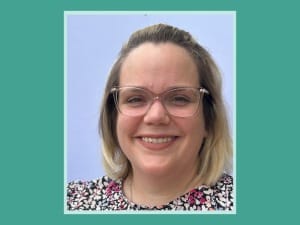Simon Underwood spent two years working as a rotational pharmacist and then decided to specialise in oncology and haematology. It was then, in that role, that he first became exposed to digital projects. Simon instantly recognised that he could apply himself and create fixes for things using his existing technical skills. These developments within his career led Simon to work much more closely with System C’s Clinical System Teams to help develop custom clinical notes. That was his first glimpse into the evolving worlds of digital leadership roles which specialised in transformation and quality improvement.
Transition to Clinical Informatics
Simon then went into a Clinical Informatics Pharmacist role, which has a very broad scope. This role varied from improving the efficiency of processes through the implementation of digital solutions, creating live dashboards to inform resource allocation, to anything focused on quality improvement, in addition to the traditional EPMA aspects of a pharmacy role.
Applying for the Aspiring Digital Leadership Programme
Simon had only been in a dedicated digital role for about a year when he applied for the Florence Nightingale Foundation’s Aspiring Digital Leadership Programme. He had a limited perspective at the time as his only experiences stemmed from local mentors and resources.
What interested Simon about the programme was the Florence Nightingale Foundation. He had heard from colleagues that it was held in such high regard and had been delivering high-quality courses for multiple years. He also claimed that the fact that it was the first cohort of the programme helped his decision in applying, as it would be a recently developed syllabus which was adapted to how the world is changing to digital.
Simon also noted that, “my line manager was supportive and recommended that I apply to the programme to broaden my experiences and systems-level knowledge.”
One of the biggest features for Simon on what made his experience so positive was the fact that there was a huge variety of professions which took part. This allowed him to see what roles other professions are developing, how their case studies and approaches to digital transformation vary. Previously, on other courses, Simon noted how he was predominantly with other pharmacists, so it was a nice change to have the ability to learn from others outside of his profession.
Key Benefits of the Programme
Simon listed what he believed were some of the key benefits of doing the programme:
RADA Course – “As the world was rapidly moving to video calls, just having that quick handout about how to structure and lead them so that they are an even more effective way of communicating was useful.”
Helping Imposter Syndrome – “It helped with my imposter syndrome, by improving my confidence, but also because everyone shared their own experiences with the same doubts and nerves, which created a supportive community.”
Presentation Techniques and Personal Stylistics – “I learnt that other team members will have different styles and not everyone has to have the same style.”
Networking – “Although it was more of a personal journey, you learn a lot about other people on the course, and that was very valuable and important as it brought people together.”
Growing in Confidence & Leadership
The Florence Nightingale Foundation’s Aspiring Digital Leadership Programme did a lot in terms of helping Simon with his confidence. One of the key reasons for this was how the programme helped with imposter syndrome.
“It helped me to realise that as a leader you don’t need to instantly have the perfect answer to every problem, but what you do need is tools that you can use to get to that answer, a wider network to collaborate with, and to create a supportive and compassionate environment that gets the best out of your team.”
Next Steps
Explore our wide range of news and blogs to stay up to date with everything happening at System C.
Have questions? Get in touch today. Our friendly experts are ready to help and will respond promptly.






